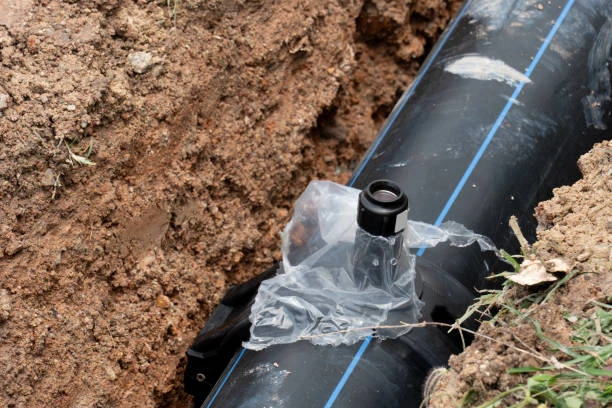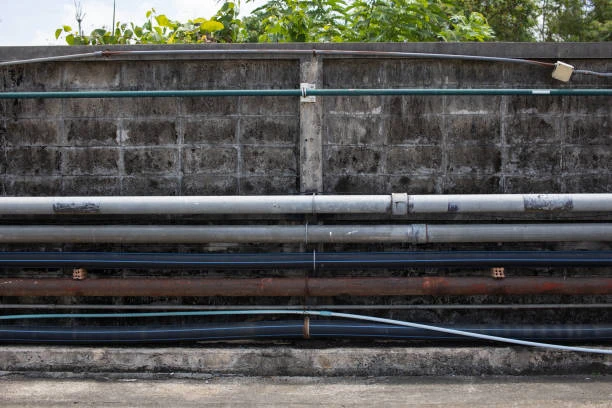In a significant shift for a Yorkshire family firm, the decision to close its 134-year-old clay pipe business has sparked a mix of emotions among employees, customers, and the local community. As the company pivots towards manufacturing plastic products, it reflects broader trends in the industry, sustainability concerns, and changing consumer preferences. This article delves into the history of the clay pipe business, the reasons for the closure, and the implications for the future.
A Legacy of Clay Pipe Manufacturing
Historical Background
The family firm has been a cornerstone of Yorkshire’s manufacturing landscape since its establishment over a century ago. Originally, the company specialized in producing high-quality clay pipes for various applications, from agricultural drainage to wastewater management. The craftsmanship involved in making these pipes was a point of pride for the firm, contributing to its reputation and success over the decades.
The Role of Clay Pipes in Industry
Clay pipes played a vital role in infrastructure development, especially during the late 19th and early 20th centuries. They were known for their durability and resistance to decay, making them a preferred choice for many applications. As urbanization increased, so did the demand for reliable drainage systems, solidifying the position of clay pipe manufacturers in the market.
The Shift to Plastic Products Clay Pipe
Industry Trends and Consumer Preferences
In recent years, the manufacturing industry has witnessed a significant shift towards plastic products. Factors such as lightweight construction, lower costs, and ease of installation have made plastic pipes increasingly popular. As a result, many traditional clay pipe manufacturers have faced declining demand, prompting them to reevaluate their product lines.
Reasons for the Closure
The decision to close the clay pipe division was not made lightly. The management cited several factors, including rising operational costs, increased competition from plastic pipe manufacturers, and shifting consumer preferences. By focusing on plastic products, the firm aims to remain competitive in a rapidly evolving market.

Clay Pipe Community Reactions
Mixed Emotions Among Employees
The closure has left many employees feeling a mix of sadness and uncertainty. Long-time workers who dedicated their careers to clay pipe manufacturing now face the prospect of job displacement. The emotional toll of closing a legacy business is palpable, as many employees cherish their connection to the firm and its history.
Customer Sentiment
Long-time customers have expressed their disappointment over the closure. Many have relied on the clay pipes for their durability and performance. The transition to plastic products raises concerns about quality and the long-term reliability of the new offerings. The firm’s management has committed to ensuring that the quality of plastic products meets or exceeds the standards set by their clay counterparts.
Clay Pipe Economic Implications
Impact on the Local Economy
The closure of the clay pipe business is likely to have ripple effects throughout the local economy. As a historic employer, the firm has supported many families and contributed to the community’s economic stability. With job losses, local businesses that rely on the spending power of employees may also feel the impact.
Potential for Job Retraining
In light of the closure, there may be opportunities for job retraining and upskilling for displaced workers. Local government and community organizations could collaborate with the company to provide training programs that help workers transition into roles in the expanding plastic products sector or other industries.
The Future of Plastic Products Clay Pipe
Company Vision and Strategy
The management’s focus on plastic products is part of a broader strategy to adapt to changing market conditions. By investing in modern manufacturing techniques and sustainable practices, the firm aims to position itself as a leader in the plastic pipe industry. This includes exploring innovative materials and technologies that enhance product performance while minimizing environmental impact.
Commitment to Sustainability
As the industry evolves, sustainability has become a significant concern. The firm is committed to incorporating eco-friendly practices in its new plastic product lines. This includes exploring recycling options and using materials that reduce environmental footprints, aligning with global trends toward more sustainable manufacturing processes.
Clay Pipe Conclusion
The decision to close a 134-year-old clay pipe business represents a poignant moment for the Yorkshire family firm. While the shift to plastic products may ensure the company’s future viability, it also marks the end of an era. The emotional reactions from employees, customers, and the community underscore the deep-rooted connections to the firm’s history. As the company embarks on this new chapter, it faces the challenge of maintaining quality and trust while embracing innovation and sustainability in the plastic products market.
FAQ
1. Why did the Yorkshire family firm decide to close its clay pipe business?
The firm closed its clay pipe division due to declining demand, rising operational costs, and competition from plastic products.
2. What will happen to the employees affected by the closure?
Employees may face job displacement, but there could be opportunities for retraining and transitioning into new roles.
3. How will the shift to plastic products affect product quality?
The firm is committed to ensuring that its plastic products meet or exceed the quality standards of its clay pipes.
4. What is the company’s vision for its plastic products?
The company aims to become a leader in the plastic pipe industry by investing in modern manufacturing and sustainable practices.
5. How does the closure impact the local economy?
The closure may lead to job losses and affect local businesses that rely on the spending power of employees at the firm.

















![PE Pipe Market Size, Share, Trend [2024-2032] Forecast Report PE Pipe Market](https://pipefittingblog.com/wp-content/uploads/2024/10/8cdda3b4892b4617b9072c650cb5ee0d.webp)
